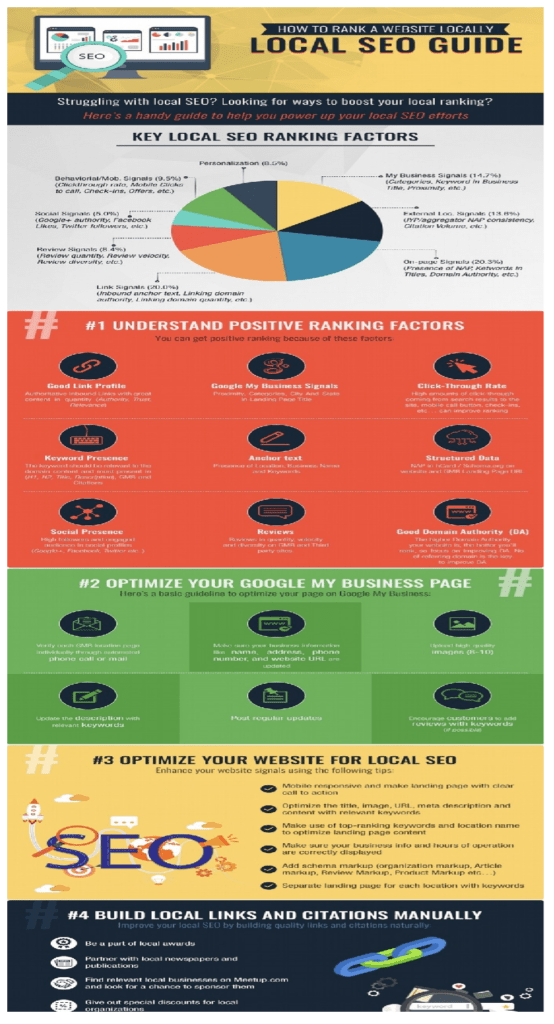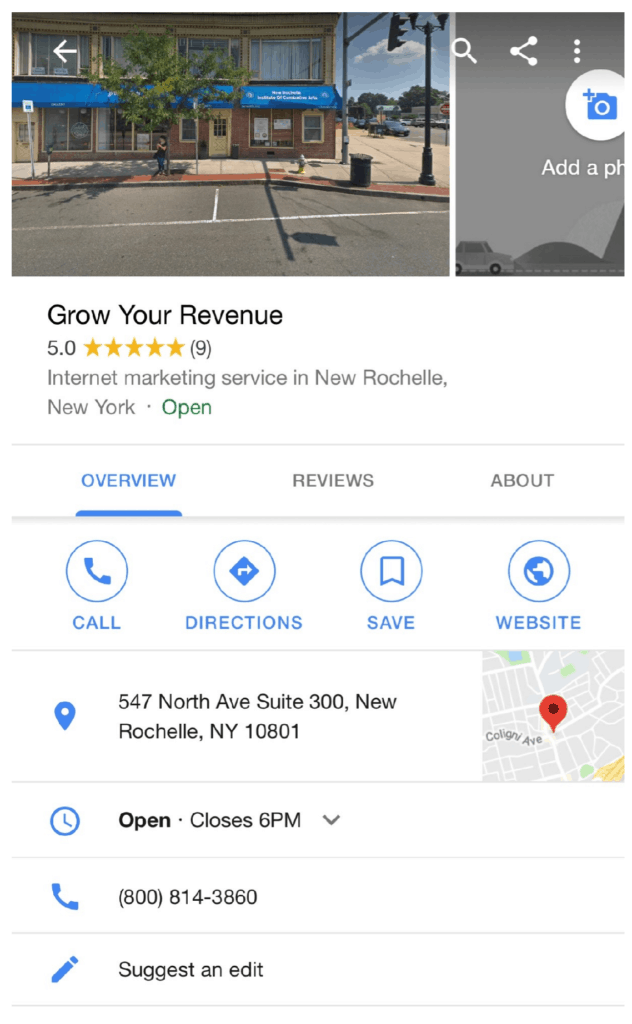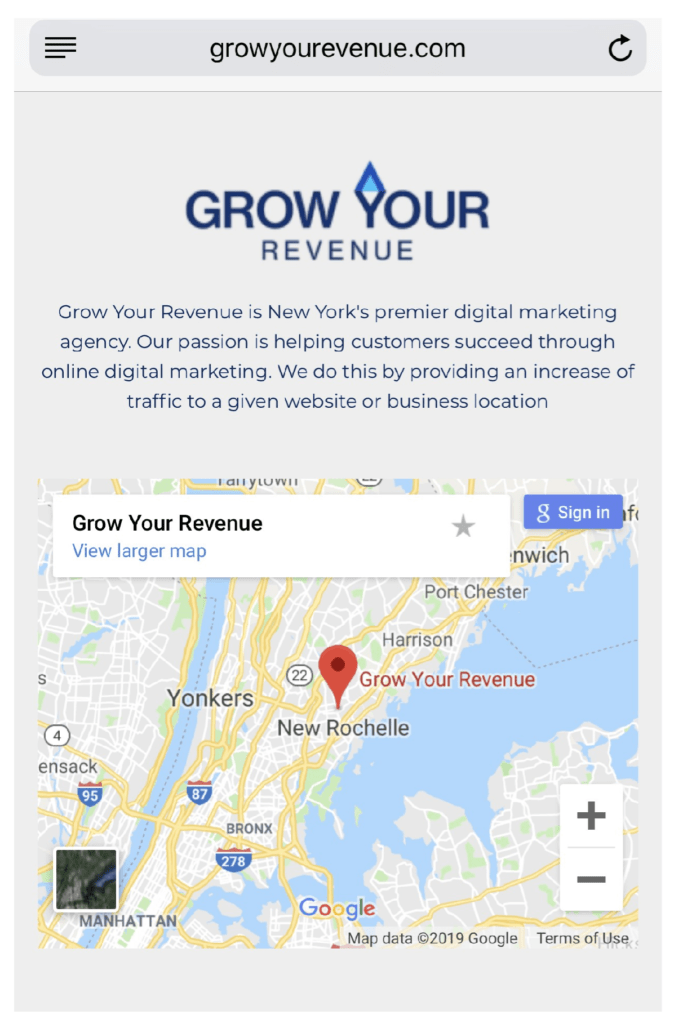Even with the boom in online shopping and e-commerce, 85 percent of all purchases and services still happen in brick and mortar stores. Also, 80 percent of all disposable income in the United States gets spent no more than 20 miles from where consumers live. Given all this data emphasizing local spending, it just goes to show that local SEO is every more essential for any local or small business if they want to generate exposure and get more revenue in the year of 2020 and beyond. Keep reading this article to learn just what local SEO is and why a community business has to incorporate it into their advertising and marketing plans.
What is local SEO?
Local SEO is the process of optimizing how visible your business is online so that it can attract more consumers from their related local searches. These kinds of searches happen on all the major search engines, namely Google, but also Yahoo and Bing.
Why is local SEO important?
Google says that over half of its searches now feature some kind of local intent. In fact, 56 percent of all their searches on their platform are for folks looking for a local business that they can use. That number is also going up. In this day and age, many consumers are using search engines to research local businesses, which means that the number of referrals happening by word of mouth are not what they once were. If you’re the owner of a local business, and you’re not optimizing your online visibility, then you’re missing out on free traffic that could be coming to your physical location.

Key Ranking Factors That Matter For Local SEO
If you’d like to rank on the very first page for a certain keyword that relates to your niche, then there are various ranking factors that Google and other search engines consider before they choose who gets to be ranked over their competition. The following are a handful of them:
Google My Business
This is usually a mini profile of your specific business that Google posts so prospective consumers and online users can find you if they’re searching for a related product or service which you offer. Depending on attention-grabbing and optimized content, your profile’s information, the location, hours, reviews, and descriptions of your products and services offered might draw people. This might just be what convinces prospects to click onto your site, drive to you, or call you instead of your competition.

Keyword Research
Keywords are words, phrases, and sentences which describe content. They’re used in metadata to describe database records, text documents, images, and even entire Web pages. Each keyword in the database of a search engine has its own search volume. A great practice is using keyword research tools in order to identify the keywords that get associated with your industry which are searched more than others, because if you have them on your website, then you can enjoy free traffic because of the correlation.
Backlinks
This is any mention of your own website on someone else’s or incoming hyperlinks from other websites. You might wonder how this specifically helps out your visibility and rankings get better. Google is, of course, a machine, so there’s no way it can confirm or deny the legitimacy of every single business on the planet. As such, it uses algorithms, as well as the content of other businesses, in order to determine the current status of a business.
For instance, consider the Wall Street Journal. It’s a financial newspaper and world-renowned for their coverage of financial news. In the eyes of Google, they’re certainly a trustworthy company. So if they do a story about some local business and include a mention of that business somewhere on their website, then Google would make the assumption that they did their research regarding this business. For this reason, Google would have a better opinion about this referenced small or local business and move them up their rankings.
You should know that it’s really hard to get backlinks from other established businesses, particularly those of the caliber of the Wall Street Journal. On the other hand, if an established business decides that your company or establishment is an authority within your niche, then this might happen because of your social shares, your reviews, or just valuable content on your blog. They could reward you with a backlink.
Citation
This is when your business gets a reference on some kind of local directory. If a business gets listed on a lot of directories, then it’s a strong signal to search engines that your business is legitimate. It’s crucial to know that a business NAP, which is name, address, and their phone number, needs to be identical on every directory and consistent across the Internet. When a business has different names, addresses, or phone numbers online, then search engine algorithms get confused, and so the business is penalized by not having its listing on the very first page. This won’t apply to businesses that have multiple locations.
Embedded Website Map
One signal that search engines use to figure out the physical or geographic location of a business is just by reading the map they put on their website. It’s a good idea to put your business’ local map in an embedded location on every website page that you have.

Local Content
This is among the greatest ways to generate local rankings, if you consistently upload content that is locally relevant. You can drive more traffic towards your site, and that ultimately means more traffic to your physical business.
Reviews
When any prospect is searching for some local business using their favorite search engine platform, then they’re going to expect a list of only the best businesses in the area. If they happen to go into any business that had a first-page listing and didn’t get great service, then they’d wind up losing trust in both that business and the search engine that originally referred them. This can have a very bad impact on how many users stay loyal to a particular search engine platform, and that can later lead to less revenue for that search engine.
In the online and digital realm, reviews have a strong correlation to user experience, which is something that search engines take quite seriously, particularly when it comes to recommending local businesses.
10 Best Local SEO tools
Now that you know how local SEO is defined, why it’s important, what some local SEO services are, and what the various ranking factors are, it’s time to tell you about a variety of tools you might use in order to audit your website so that you can optimize it for the most visibility.
1) Ahrefs: This is a favorite tool of many, since it helps them with robust backlink analysis on their competition. This kind of data is great because you use it to stay ahead of your competitors if you’re in such a position. Alternatively, you can also use it to catch up with them.
2) Bright Local: This tool lets you keep up with your business ranking, as well as the rankings of your competitors, in major search engine platforms.
3) Google Analytics: This software gives you behavior data about all the visitors your website gets. You can find out what pages they visited, how they got there, and how long they stayed there.
4) Google Page Speed Insight: One big reason why a consumer might wind up not calling a business or scheduling an appointment is that the loading speed of a website is poor. This tool can provide you with insight into how fast your website load time is as well as what you can do to fix it.
5) Google/Bing Search Console: Both these search engines run search consoles you can use to measure and track the traffic of your website, its performance, and what position it has on various search engine platforms.
6) Keywordtool.io: This keyword planner tool can give you keywords that are highly searched but also related to your chosen niche.
7) Moz Local: This listing management tool lets you create, claim, update, verify, and even delete your business listings and citations across the Internet. There’s even a monitoring feature which can scan the Internet for errors before helping you fix them.
8) Schema Creator: You can use this to build up schema.org microdata with ease, which means it’s much easier for a search engine to crawl and then index your website for their platform.
9) Screaming Frog: This SEO tool is free, and it lets you audit and then indexes your HTML website. It can also look out for broken links and then fix them.
10) Yoast: This WordPress SEO plugin optimizes websites for on-page SEO so they perform optimally in search results.
Final Thought
Local search engine optimization is certainly the future of advertising and marketing for any local or small business. The costs involved in paid ads keeps rising, so being able to rank for free on the very first page of a major search engine is certainly the way you want to go.
If you have any other questions regarding Local SEO contact us at Grow Your Revenue, we are New York SEO agency that would gladly help you answer any questions that you may have.

